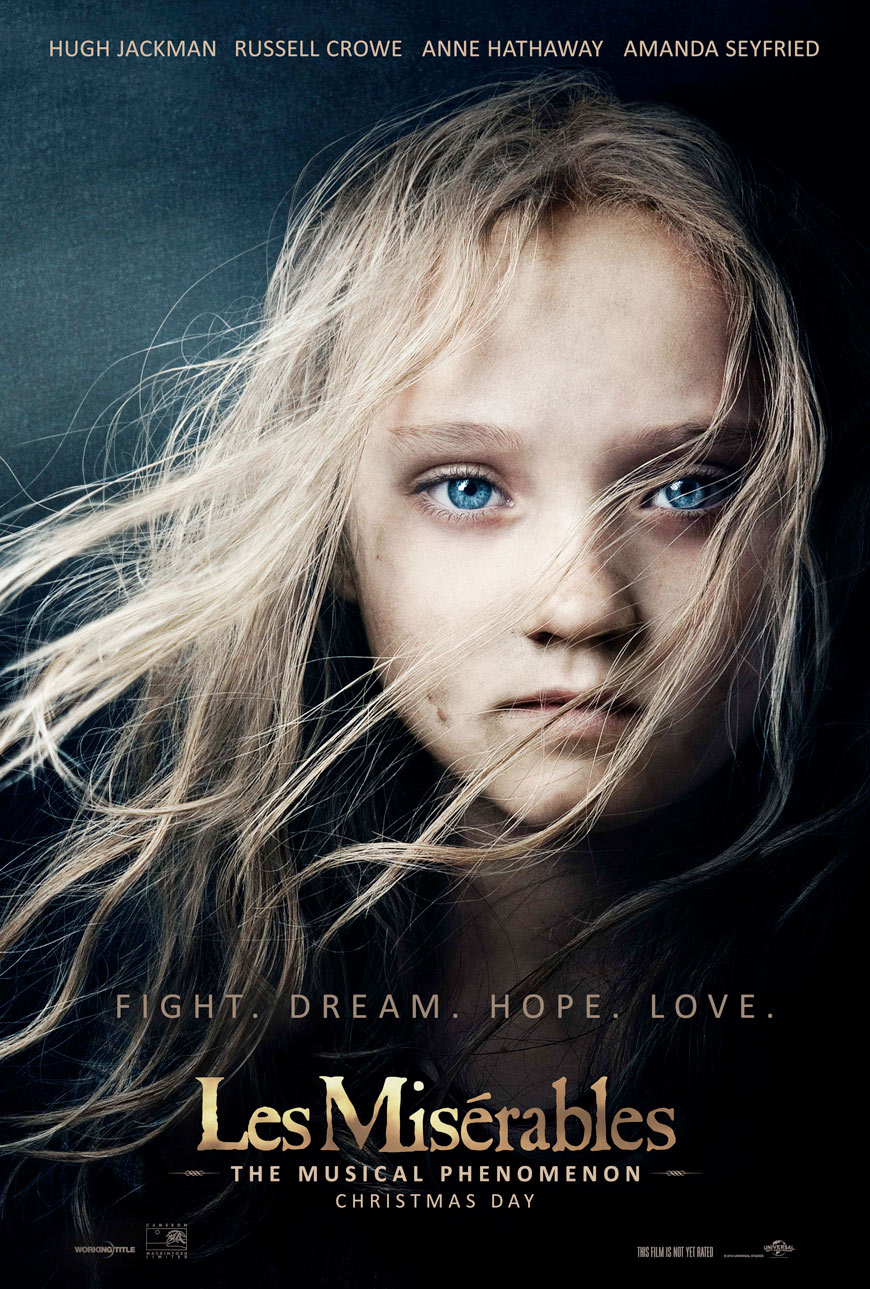“But the tigers come at night … they tear your hope apart and turn your dream to shame.”
This line is sung bitterly by the angelic Fantine (Anne Hathaway), who has been cast into the shadows by a cold world early on in the world-renowned “Les Miserables.” Longtime fans of the musical know her ballad well, but will see it reborn in Hathaway’s masterful portrayal. While this film has holiday feature written all over it, know that it is deeply raw and troubling as the play has always intended to be. The rawness of Tom Hooper’s cinematic adaptation is dark and gloomy — “Les Miserables” literally means “the miserable ones” in English, but the story ultimately takes this misery and redeems it with acts of love, courage and, above all, grace.
The story of “Les Mis” is a nuanced one, with themes that are embodied by many different characters. The heart and soul of the plot is Jean Valjean (Hugh Jackman), a broken man who holds anger in his heart after serving an unreasonably long period of incarceration for a selfless crime. He is released on parole, but shortly after commits an act of thievery so that he may survive. Valjean is caught by the police, but in a simple act of grace he’s released and commits his life to God’s love. From this transformation, Valjean’s life takes many twists and turns, his choices affecting many others including Fantine, her daughter Cosette (Isabelle Allen) and the determined parole officer, Javert (Russell Crowe).
Live vocal performances add intimacy to "Les Mis"
There have been many film adaptations of famous stage plays, most of them grand in scale and preposterously inflated. 2001’s “Moulin Rouge” and 2004’s “Phantom of the Opera” both robbed their material of its majesty and rapport in all of the glam. “Les Miserables” goes in the other direction, with sets and lighting that look and feel like a real Broadway set and performances that never break. The actors accentuate the subtle imperfections of their characters rather than try to appear polished and composed.
The most impressive thing about the film is not the vocal ability of the cast, but rather their ability to sing live. All of the vocal performances in “Les Miserables” were sung and recorded live on set — movie musicals tend to lip sync the actors with voice-over recordings from a sound stage either before or after production, which limits the emotion behind the dolled-up songs. In “Les Miserables,” when you hear Jackman’s voice and the choked sobs between stanzas, it’s all real and happening right before your eyes.
Tom Hooper, who also directed the 2011 Best Picture winner “The King’s Speech,” made sure that the intimacy of “Les Miserables” was at an all-time high. The lenses used for filming had very shallow focus, which served the performances well since it allowed for greater detail in the actor’s faces. However, Hooper could have afforded a more thematic tone to the project, similar to the way Tim Burton took “Sweeney Todd” in 2007 and made it uniquely cinematic while also retaining the legitimacy of the original musical.
Audience will find performances driving force of film
When walking into “Les Miserables,” it’s important to remember that you’re essentially walking into a play. There is a lot of singing — and I mean a lot. While I appreciated Hooper’s direction and the way he focused scenes on particular characters, the intimacy of the camera on whoever was singing at times reduced the musical sequences to claustrophobic close-ups. Jackman is an amazing singer, with range to spare, but Valjean helms so many songs that the repetition of it all could become taxing on someone who expected more elaborate cinematography and quicker cuts.
I was blown away by the opening of “Les Miserables,” and Hathaway’s Fantine made my heart swell. Halfway through, I felt the same way I do in live musicals — that the songs were becoming repetitive and bombastic and I could feel myself losing interest. But then I was able to convince myself that I was watching a play captured by cameras, and that the plot is not as even as any given screenplay. While the story is central, the performances are the driving force, and by getting lost in them I eventually found solace in the film. The last five minutes of “Les Mis” have so much spiritual fervor and climactic sentiment, you won’t help but swallow some tears. It’ll remind you that amid the stories of young love, revolution, vengeance and loss, grace is ultimately what Valjean’s tale is all about.







